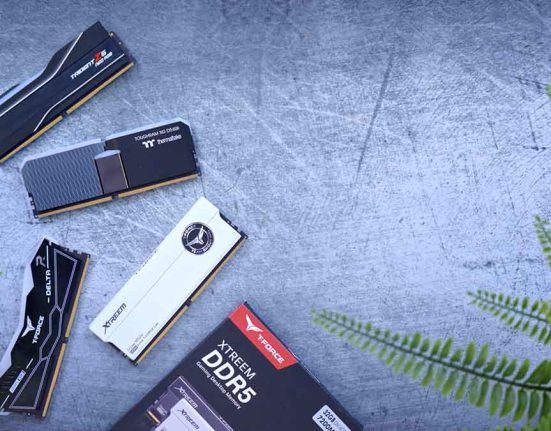If you’ve picked up AMD’s Radeon RX 7600 XT in order to build a 1080p gaming PC, you may be wondering what budget-friendly case you should pick up alongside it. Fortunately, the smaller size of this graphics card allows it to slot into a variety of cases with ease, including more compact form factors such as micro-ATX and mini-ITX designs.
But out of the vast range of affordable chassis available, which should you choose for your RX 7600 XT graphics card? In this buyers guide, we’ll be discussing the best cases for AMD’s RX 7600 XT, a graphics card dedicated to offering gamers an excellent 1080p gaming experience. Given the budget-friendly nature of this GPU, all of the featured PC cases can be found for $100 or less.
The Best Cases for RX 7600 XT
1. NZXT H5 Flow

NZXT’s H5 Flow keeps the minimalist design that is synonymous with the brand, just in a smaller form factor. However, this chassis doesn’t allow the focus on simplicity to interfere with its practicality, as it offers plenty of support for the latest components, as well as lots of ventilation for optimal airflow.
Despite being a more compact mid-tower case, the H5 Flow includes support for up to ATX motherboards, as well as six 120mm fans. RX 7600 XT users will also be happy to hear that the H5 Flow comes with 365mm of GPU clearance, which is more than enough to support any variant of this GPU with room for air to move around it.
| Key Specs | NZXT H5 Flow |
|---|---|
| Form Factor | Mid-Tower |
| Motherboard Support | Mini-ITX Micro-ATX ATX |
| Front IO | 1 x USB 3.2 Gen2 Type-C 1 x USB 3.2 Gen1 1 x Audio Jack |
| Max. Clearance | 365mm GPU Length 165mm CPU Cooler Height 250mm PSU Length |
| Drive Support | Up to 2 x 2.5 inch 1 x 3.5 inch |
| Fan Support | Front: 2 x 120mm Top: 2 x 120mm Rear: 1 x 120mm Bottom: 1 x 120mm |
| Max. Radiator Support | Front: 280mm Top: 240mm Rear: 120mm |
| Pre-Installed Fans | 2 x 120mm |
Considering you can pick up this PC case for a reasonable price, the overall package of the H5 Flow offers great value for money, making it one of the best PC cases on the market. The main weak spot of this case is the front IO, as the single USB-C and USB port is fairly limited, making it difficult to connect peripherals and accessories.


Suggested Article: 10 Features To Look For in Your Next PC Case
2. DeepCool CH370

If you’re looking for something more compact, then DeepCool’s CH370 is an excellent choice for an RX 7600 XT gaming PC. This micro-ATX chassis is essentially a shrunken down version of more conventional mid-tower cases, providing builders ample space despite being smaller in stature.
Whilst this may raise some concerns over airflow and thermal regulation, the CH370 can hold up to eight 120mm fans, along with support for 360mm liquid CPU coolers. This leads to plenty of airflow, which makes it easy to cool entry-level components such as the RX 7600 XT.
| Key Specs | DeepCool CH370 |
|---|---|
| Form Factor | Micro-ATX |
| Motherboard Support | Mini-ITX Micro-ATX |
| Front IO | 2 x USB 3.0 1 x Combo Audio Jack |
| Max. Clearance | 320mm GPU Length 165mm CPU Cooler Height 160mm PSU Length |
| Drive Support | Up to 2 x 2.5 inch Up to 2 x 3.5 inch |
| Fan Support | Front: 3 x 120mm Top: 2 x 120mm Rear: 1 x 120mm Bottom: 2 x 120mm |
| Max. Radiator Support | Front: 360mm Top: 240mm Rear: 120mm |
| Pre-Installed Fans | 1 x 120mm |
In terms of design, the CH370 is also packed with a number of quality of life features, including a built-in GPU support bracket and retractable headset holder. As for the aesthetic, the grid-style front panel and plastic insert provides a starry effect that adds some unique detailing to an otherwise simplistic design.
However, the disadvantages of picking up this case comes with the limited versatility in regards to motherboard compatibility. Anyone using the CH370 will be restricted to a micro-ATX motherboard, limiting the number of slots for SSDs and any additional PCI-E components.


3. Corsair 2000D Airflow

Mini-tower cases have become a popular alternative to the traditional mid-tower form factor, mainly due to the reduced impact on desk space while maintaining support for a wide range of components. Corsair’s 2000D Airflow is a great example of the benefits these designs can provide, as this chassis offers connectivity and airflow optimisation that competes with the other cases we’ve tested.
With 365mm of GPU clearance, this chassis will have no issues supporting AMD’s RX 7600 XT graphics cards. In addition, the mesh panels surrounding the frame and ability to house up to eight 120mm fans ensures the components inside the 2000D Airflow will stay at lower temperatures.
| Key Specs | Corsair 2000D Airflow |
|---|---|
| Form Factor | Mini-Tower |
| Motherboard Support | Mini-ITX |
| Front IO | 1 x USB 3.2 Gen2 Type-C 2 x USB 3.2 Gen1 1 x Audio Jack |
| Max. Clearance | 365mm GPU Length 165mm CPU Cooler Height 130mm PSU Length |
| Drive Support | Up to 3 x 2.5 inch |
| Fan Support | Front: 3 x 120mm Side: 3 x 120mm Rear: 2 x 120mm |
| Max. Radiator Support | Side: 360mm Rear: 240mm |
| Pre-Installed Fans | N/A |
Unfortunately, there are some caveats to the smaller form factor. The biggest setback is the limited support for motherboards and PSUs, which can seriously limit component choices for those on a tight budget.
4. Fractal Design Pop Air

When it comes to finding a case for a budget-friendly build, the Fractal Design Pop Air has proven to be a reliable option. With a focus on providing a strong combination of airflow and easy installation, along with a vibrant look that is available in a wide array of colours, the Pop Air has become a popular choice for gaming PC builds.
Whilst a lot of the attention of this case is focussed on appearance, the Pop Air includes a number of practical features that are also worth taking into account. For example, this chassis provides up to 405mm GPU clearance, allowing it to house the RX 7600 XT with ease. In addition, the support for ATX motherboards gives buyers more freedom when picking out parts for their build.
| Key Specs | Fractal Design Pop Air |
|---|---|
| Form Factor | Mid-Tower |
| Motherboard Support | Mini-ITX Micro-ATX ATX |
| Front IO | 2 x USB 3.0 1 x Audio Jack |
| Max. Clearance | 405mm GPU Length 170mm CPU Cooler Height 170mm PSU Length |
| Drive Support | Up to 4 x 2.5 inch Up to 2 x 3.5 inch |
| Fan Support | Front: 2 x 120mm Top: 2 x 120mm Rear: 1 x 120mm |
| Max. Radiator Support | Front: 280mm Top: 2 x 120mm Rear: 1 x 120mm Bottom: 2 x 120mm |
| Pre-Installed Fans | 3 x 120mm |
The front panel also provides a number of welcomed features, such as a geometric mesh front panel that looks great and maximises air intake and output. Also, the hidden compartment slides out, allowing you to neatly tuck away external storage with ease.
Though the Pop Air is a well-rounded design, especially for the price point, there are some design choices that could be improved upon. The best example comes with the front IO, as the USB-C port on the chassis doesn’t work out of the box. Instead, you’ll need to purchase the dedicated USB-C extension for an additional $10.


How We Test the Best Cases for RX 7600 XT
When it comes to testing PC cases for a particular graphics card, there are a number of different tests and parameters a chassis has to clear before it can be considered as a recommendation. Most importantly, the case must have enough clearance for the GPU in question, which hasn’t been much of an issue with the RX 7600 XT. Then, we test the airflow and installation process by building a system inside the case.
Once the testing is complete, we then gather the results and evaluate the contenders using a number of key factors. For PC cases, the main factors we consider include:
- Form Factor
- Component Support
- Clearance
- Thermals & Airflow
- Connectivity
- Value for Money
If you would like further information on our methods, we have provided a more detailed look at our testing methods for PC cases.
Frequently Asked Questions
How Big Is the RX 7600 XT?
Sizing does vary, but you can expect an RX 7600 XT card to be around 230mm-280mm in length.
How Much Clearance Do I Need for RX 7600 XT?
Considering the RX 7600 XT is a smaller GPU, clearance of 300mm or above will allow for sufficient airflow.
How Much Should I Spend on A PC Case for the RX 7600 XT?
We wouldn’t recommend spending any more than $100 on a case for the RX 7600 XT.


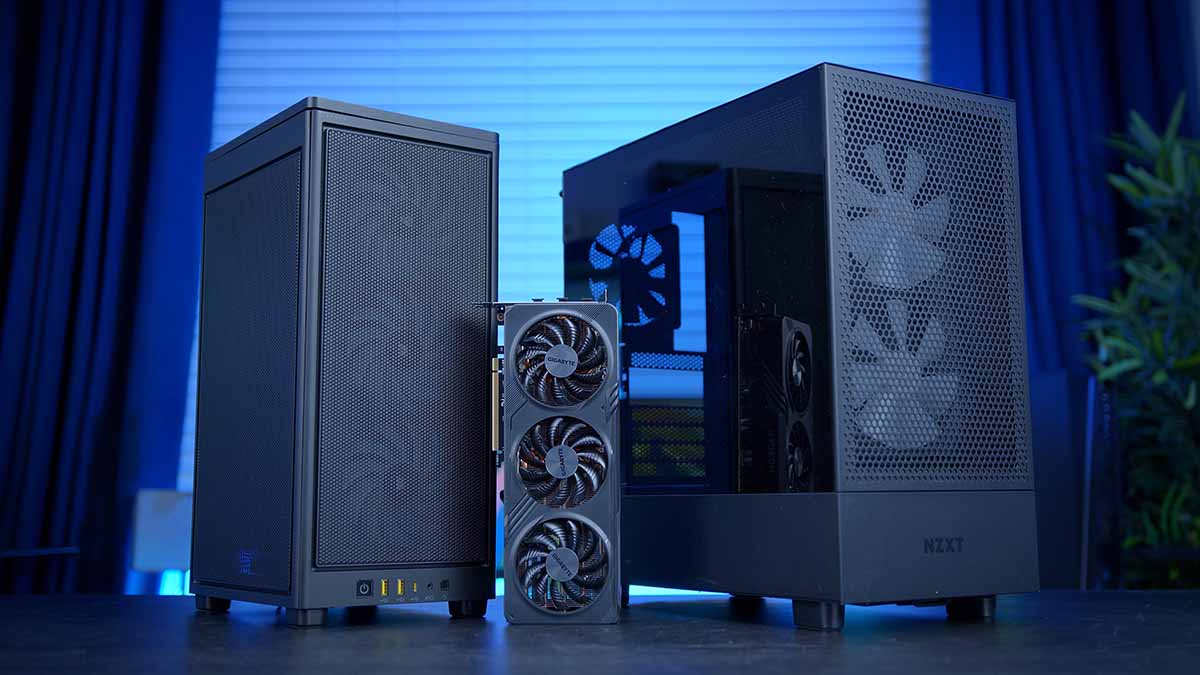
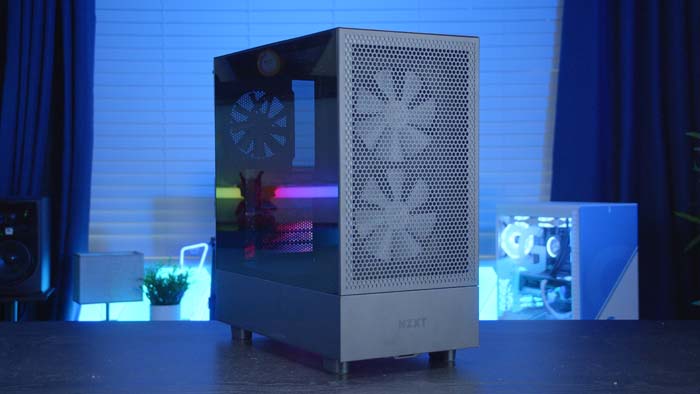



![FI_[DM89] Phanteks Evolv + AORUS 5090 9850X3D Gallery (8)](https://geekawhat.com/wp-content/uploads/2026/02/FI_DM89-Phanteks-Evolv-AORUS-5090-9850X3D-Gallery-8-551x431.jpg)
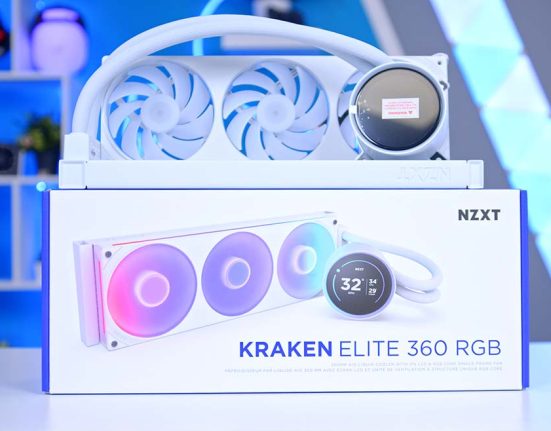
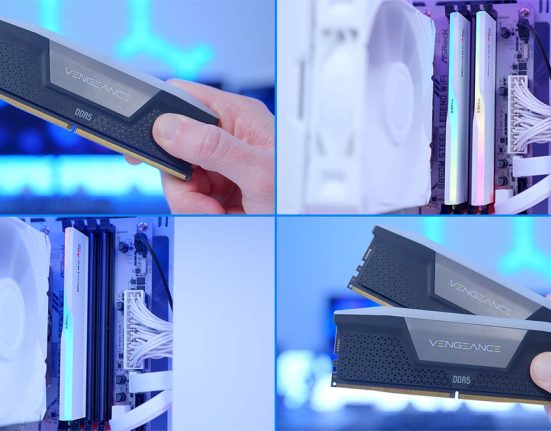
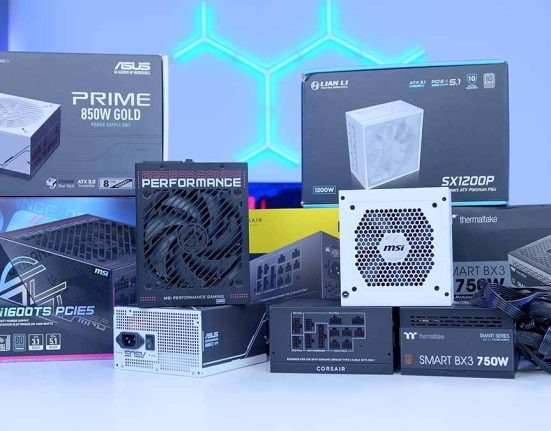
![FI_[DM88] 16GB DDR5 9060 XT Build Gallery](https://geekawhat.com/wp-content/uploads/2026/02/FI_DM88-16GB-DDR5-9060-XT-Build-Gallery-551x431.jpg)
